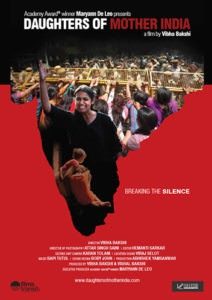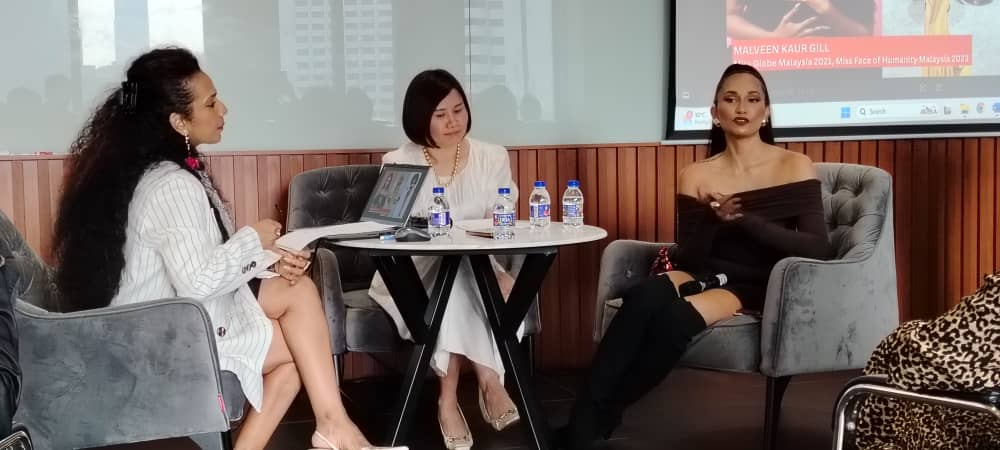My tryst with and against abuse and violence is well documented, reported and ranted about. A fact even the IGP of Goa Police, Shri Sunil Garg will agree on. During our several tete-e-tete over tea, he repeatedly tries to let me know that women’s issues are his top priority, given that too many jaded `has-beens’ have found themselves into Goa over the recent years. And yet, despite his assurances that the Goa Police leads from the front and bears a `Zero Tolerance’ attitude on crimes against women – Goa Police statistics state a decrease in crimes against women from 296 cases (June 2014) to 229 cases (June 2015), with a 14.25% performance increase in detection rate. With more women coming forward to report resulting in an overall 35.81% decrease in women related crime rate.

Says IGP Garg to re-assure me that he means business, “I take personal dignity very seriously and our goal is to empower with information.” Taking to schools with his Little Police campaign, Garg aims to “Make students aware about police functioning, educate them on security, traffic, substance abuse and violence.” Garg has launched help-lines for women safety (1091) and senior citizens (1090), community policing, a safety APP in the making, a `best police station trophy,’ a comprehensive traffic signal plan across 53 identified locations etc., to encourage faith building measures with the general public and within the organisation. While some may enjoy data crunching and everything may look hunky dory on paper, it is the execution that finally decides cake from chalk. During my frequent travels on business across the country, often as a single lady at airports and taxis, the rest of India seldom reflects the confidence Garg has in his Goa policing. We are after-all, the country’s uber thinking State, no? Yet, look at the domestic violence happening in our marital homes!
Here is where my feisty soul-sister, director and film-maker Vibha Bakshi comes into play with her National award winning film, `Daughters of Mother India,’ made post the traumatic, violent attack and murder of one (of the several everyday) India’s daughter, Nirbhaya. Winner of the National Film Award for `Best Film on Social Issues’ at the 62nd National Film Awards, Vibha set out to investigate the aftermath of Nirbhaya, shaking up systems and mindsets of the Delhi police, and a country that continues to make victims out of women and children. While Nirbhaya’s outrage brought shameful world attention to India, forcing the judiciary and policing to remove their heads out of ostrich holes, a look around our police stations and courtrooms still bears an apathy towards this malice. This empowerment needs to percolate right down to the rural woman.

Says Vibha, “Through the film I wanted to make everyone take the responsibility of putting the shame where it is supposed to be, and not on the victim. In the case of Nirbhaya, I felt we had all failed as a society. But then we reacted to the violence in a way that no other country in the world has,” she recounts. Setting out to research and document this violence against our gender, Vibha narrates horrific bottlenecks and a de-sensitized population including police stations and the women in police uniforms, “After spending time with the Delhi police, I realized that what they (and the general police in this country) think, is a reflection of how society thinks. If we think domestic violence is a gharelu maamla (domestic home problem), the police think that too. Which is why we, as a people and as a society, need to change that. However, what has changed post the protests and the film, is the increase in reporting a crime through the help-lines. Which means that the shame is now being transferred from the survivor, to the perpetrator. Women have begun to take a stand. We forced the Indian law to take cognizance with the Criminal Law (Amendment ) Act 2013, which now clearly defines Rape, addresses issues such as stalking, voyeurism, acid attacks, and provides for life imprisonment and even death for the convicted. Women’s rights are a political issue now. We are definitely on the radar. The media has played a critical role in this change and we have to keep talking about it, otherwise people forget,” says Vibha passionately.
A sentiment recognised recently by Viacom 18. Shares Vibha, “Viacom18 has taken up the urgent and burning issue of gender violence to the front by doing a prime release on TV and dubbing the film in six languages. The film was shown during the 3rd death anniversary of Nirbhaya. Hope this initiative will encourage more networks to take up compelling stories that can bring in social change.”
Should we urge the Goa IGP to showcase this film across the police stations of Goa? I say Hell yes! Should we take it to our schools and colleges and make young women and men co-partners in building a healthy country by speaking up? Undoubtedly, yes! “If we don’t talk enough about it, people forget. Most sexual assaults occur in private spaces. In a majority of cases across the country (and Goa) the assailants are neighbours, husbands, lovers, fathers, uncles, cousins, friends or relatives. The film serves as a reminder,” asserts Vibha and I agree vociferously, because gender sensitization must begin in our homes. Because we, women, have finally broken our silence on violence. It is time to evoke your inner goddess.




Good Webpage, Continue the beneficial job. Thanks a ton!.